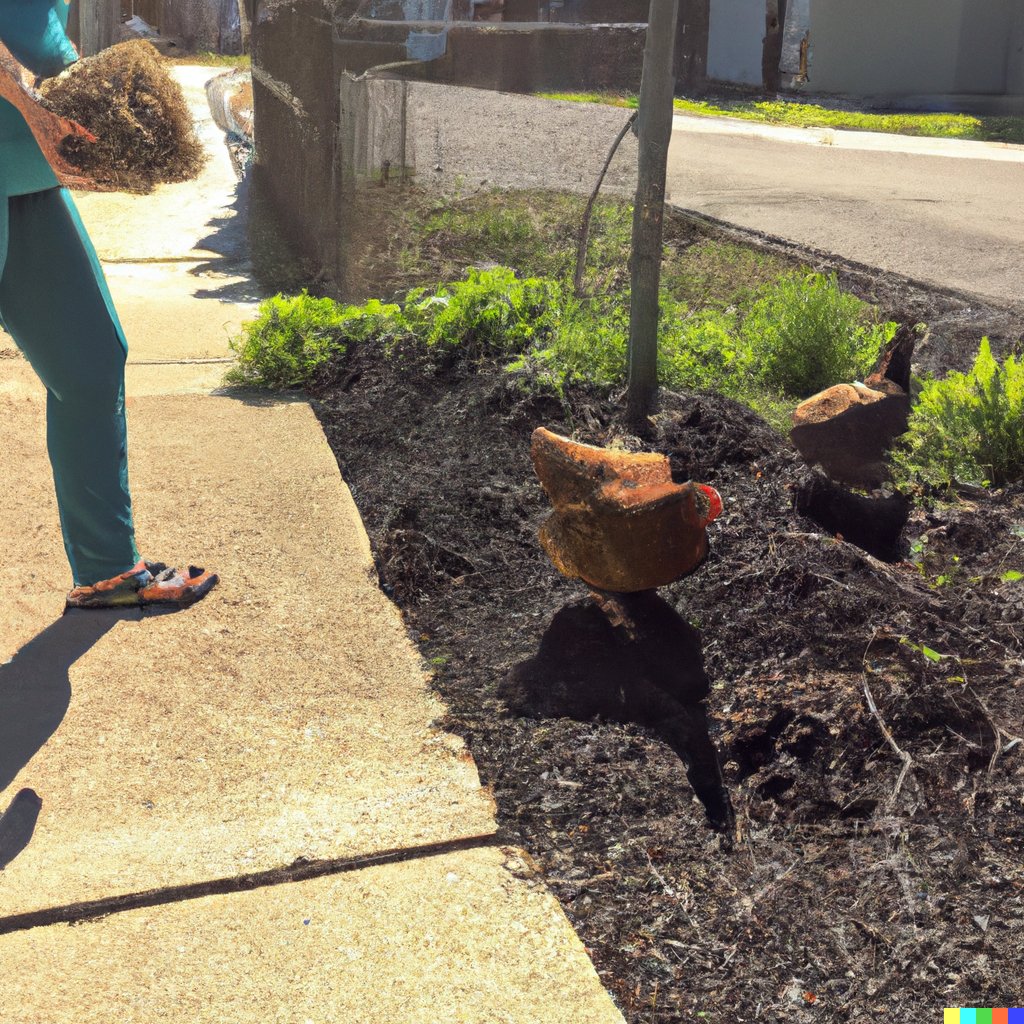
As we continue to face environmental challenges and depletion of resources, it is becoming increasingly important to find ways to live sustainably. One simple yet impactful way to do so is by planting on your balcony and windowsill. If you want to make a positive impact on the planet, then this article is a must-read for you.
Enhancing Air Quality through Urban Gardening
Urban gardening has a major effect on air quality. Plants absorb CO2 and emit oxygen via photosynthesis, decreasing urban contamination. Plus, green areas serve as natural air purifiers, eliminating hazardous pollutants and enhancing the general air quality.
|
Advantages of Urban Gardening for Air Quality |
|
- Carbon dioxide absorption |
|
- Oxygen release |
|
- Photosynthesis benefits |
|
- Decreasing of urban pollution |
Moreover, urban gardens contribute to the decrease of urban heat island effect by providing shade and cooling effects. The appearance of vegetation also produces a barrier between structures and traffic, limiting the infiltration of pollutants into interior settings.
To increase air quality with urban gardening:
- Select air-purifying plants like snake plants or peace lilies, known for their capacity to filter out toxins.
- Construct vertical gardens to optimize space usage and increase the number of plants.
- Follow proper care, watering, and fertilization to guarantee healthy plant growth and best air purification.
- Consider adding herbs like basil or mint, which not only improve air quality but also give aromatic benefits.
By applying these suggestions, people can actively contribute to bettering air quality in urban surroundings while enjoying the numerous advantages that urban gardening offers. Don't worry, planting your balcony and windowsill won't attract wildlife, but it may make your neighbors jealous.
Promoting Biodiversity in Urban Spaces
Urban heat island? More like urban meat frying pan! But don't worry, we can help cool it down. Balconies and windowsills are great places to plant a variety of native plants. These will attract specific species and provide key resources for local wildlife. Plus, they'll create mini-wildlife sanctuaries - a refuge for native animals seeking shelter or resources.
Birdbaths and bird feeders can also help support bird populations. This will not only enhance the aesthetics of our surroundings but also give us opportunities to connect with nature in our own homes.
By implementing these suggestions, we can all make a difference in supporting biodiversity in our ever-expanding urban landscapes.
Mitigating the Urban Heat Island Effect
Urban heat island mitigation is key for sustainable living and building resilience to climate change in cities. Strategies to mitigate the urban heat island effect help create better and comfier environments for people.
One great way to reduce the urban heat island effect is to use green spaces, such as gardens, parks, and vegetated roofs. These green areas provide shade, absorb solar radiation, and promote evapotranspiration, which cools the air around.
People often forget the many benefits of green spaces, like improving air quality, acting as carbon sinks, and providing habitats for wildlife. They also help us feel good, look nice, and get more physical activity.
Let's look at Singapore as an example: the city-state has invested in green infrastructure, like rooftop gardens and vertical greening systems. This has not only cooled things down but also improved livability and earned them the title of a "garden city".
Bringing the farm to your windowsill - snack on carrots you've grown yourself, rather than store-bought ones.
Creating Sustainable Food Sources
Creating a Sustainable Source of Food is possible with home-grown herbs and vegetables. Their importance is high, as they provide individuals direct control over food quality and freshness, while reducing transportation and storage needs.
Organic produce is another key part for sustainability. Organic farming avoids harmful pesticides and fertilizers, benefiting soil and biodiversity. Growing organic fruits and veggies also supports a healthier ecosystem and cuts down chemically treated produce consumption.
Self-sufficiency is essential too. Growing your own balcony or windowsill garden reduces reliance on external sources, lessening the ecological footprint and empowering conscious choices.
Nutrition-wise, freshly harvested herbs and vegetables are better than store-bought produce - they contain more vitamins, minerals and antioxidants. Home-grown goodness enhances overall health and well-being.
Vertical gardening is great for maximizing space. Choose plants according to your climate and conditions, then water, fertilize and prune regularly. Take these steps to contribute to creating a sustainable source of food with the rewards of home-grown goodness - and don't forget, when the zombie apocalypse comes, you'll be the only one with a sustainable food source!
Enhancing Food Security and Resilience
Promoting self-reliance is essential for sustainable living. Planting your balcony and windowsill can contribute to food security and resilience in a crisis.
Advantages of Balcony and Windowsill Planting:
- Fresh produce at your fingertips: Herbs, leafy greens.
- Emergency food supply: Tomatoes, peppers, beans.
- Less reliance on external sources: Carrots, radishes, lettuce.
- Community resilience: Cucumbers, strawberries.
- Sustainable living practices: Peas, mint.
Benefit from the various advantages of planting your balcony and windowsill! You can enjoy easy access to fresh produce, increased emergency food supply, reduced reliance on external sources, enhanced community resilience, and the promotion of sustainable living practices. Start cultivating today and enjoy an organic, guilt-free way to grow your own salad!
Reducing Food Miles and Carbon Footprint
Grow Food On Your Balcony To Go Green!
Want to make a positive change to sustainability? Plant fruits and veggies on your balcony and windowsill! This reduces the distance travelled by food, minimizes transportation emissions, and lessens greenhouse gases associated with industrial agriculture.
Home-grown food brings us closer to a more eco-friendly lifestyle. We can actively reduce transportation emissions and the carbon footprint of our meals. Even in limited spaces like balconies and windowsills, we can contribute to localised food systems that benefit the environment.
A study found that around 20% of global greenhouse gas emissions are food production-related, including transportation. So, get growing! Join the neighbourhood and reap the rewards of an eco-friendly community.
Inspiring Eco-Friendly Community Practices
Eco-Friendly Practices: A Catalyst for Sustainable Living!
We all want to be green! Communities that promote green living are important to live a sustainable lifestyle. Let's check out some inspiring examples of eco-friendly practices!
Take a look at this table:
|
Community |
Green Initiative |
|
Neighbourhood A |
Regular clean-up drives to reduce litter & recycle. |
|
City B |
Bike-sharing programs to reduce carbon emissions & encourage sustainable transport. |
|
Town C |
Community gardens to promote locally grown produce & reduce food waste. |
These initiatives help conserve the environment and bring people together. By working together, these communities set an example for others to follow.
It's cool to see how this trend of eco-friendly practices grew. Individuals and communities joined forces to share their knowledge and resources. This collaboration has resulted in solutions that prioritize our planet's well-being.
Mental Health Benefits of Urban Gardening
Urban Gardening - A Cure for Mental Woes?
The effects of gardening in cities go far beyond just plants. It can be a great aid to mental health too!
- Reduce Stress: Take a break from the hustle and bustle of city life with a tranquil urban garden - perfect for reducing stress.
- Connect with Nature: Growing plants in the concrete jungle can help you stay connected with nature, aiding your mental well-being.
- Relaxation Hub: Create your own mini-sanctuary with a balcony or windowsill garden - a perfect spot to relax and find solace.
City-dwellers can now easily combine urban life and nature to take care of their mental health.
PS: Regularly tending to your garden and taking time to observe it can amplify the positive effects on your mental health. Urban gardening: the perfect way to nurture plants and get revenge on your noisy neighbors!
Educational Opportunities in Urban Gardening
Urban gardening is a great way for kids to learn about nature! It teaches concepts such as plant life cycles, pollinators, and biodiversity. Plus, individuals can gain practical skills like planting, watering, and caring for plants.
Moreover, community gardens provide a collaborative environment for exchanging ideas and sharing knowledge.
Also, by growing their own food, people can better understand where their food comes from and the importance of sustainable agriculture.
Plus, urban gardening promotes mental health and provides a calming, therapeutic activity.
Therefore, incorporating urban gardening into educational programs is extremely beneficial for understanding the environment and developing personal growth. And don't forget - composting on balconies is a fantastic way to be eco-friendly and live sustainably.
Composting and Waste Reduction
Composting and Waste Reduction - A True History!
Before modern waste management, communities used composting as their go-to for organic waste. Nowadays, with heightened eco-awareness, composting has made a comeback! It's an effective way to manage organic waste sustainably.
Benefits of Composting & Waste Reduction:
- Diversion from landfills - Composting organic waste lessens the environmental impact.
- Soil enrichment - Nutrient-rich soil aids plant growth and agricultural sustainability.
- Nutrient recycling - Essential nutrients are recycled back into the soil, creating a circular economy.
- Sustainable composting - Proper composting practices reduce greenhouse gases and methane production.
It's vital individuals prioritize composting organic waste for sustainable practices. Not only will they help divert from landfills, but also promote soil enrichment and nutrient recycling. This mindful approach is the key to a healthy environment! Why settle for a Tinder account when you can attract all the bees and butterflies to your balcony instead?
Creating Pollinator-Friendly Environments
Constructing Pollinators' Surroundings
Pollinator-Friendly habitats give numerous advantages for bee attraction, butterfly conservation, pollination aid and biodiversity boost.
- Grow different native plants and flowers to offer a broad food supply for pollinators.
- Reduce or avoid the use of chemicals and pesticides that can harm pollinators.
- Construct habitat characteristics like nesting sites and water sources which draw and help pollinators.
- Instruct others about pollinators' importance and encourage them to create their own pollinator-friendly environments.
Moreover, growing a combination of flowering plants that bloom in all seasons offers a constant source of nectar and pollen. That is essential to keep pollinators alive year-round. By giving these significant resources, you can assist make sure the existence and health of these important species.
To boost your efforts in forming pollinator-friendly environments, consider using vertical gardening skills to further maximize your space usage while encouraging biodiversity. By planting climbing vines or setting up hanging baskets on walls or balcony railings, you can produce extra habitats for numerous pollinator species without taking up floor space.
Turning your balcony and windowsill into a tiny-forest may not make you a superhero, but at least you'll be contributing to the vision of green cities and saving the world one potted plant at a time!
Contributing to the Vision of Green Cities
Urban greenification is essential for eco-cities! It helps create a sustainable, nature-inclusive urban environment.
Rooftop gardens, vertical gardens, and window boxes are all green initiatives that provide many benefits. Aesthetic improvement, thermal insulation, better air quality, and noise reduction are just some of them.
Unconventional methods like these help make cities even more sustainable.
Did you know? The idea of adding green spaces to cities dates back centuries. Ancient civilizations like Babylon planted hanging gardens for their beauty and environmental benefits.
Transform your balcony into a green paradise! Watch your plants grow while your grocery bill gets jealous.
Importance of Urban Gardening: Why is planting on balconies and windowsills sustainable and beneficial?
Urban gardening is blooming! On balconies and windowsills it brings sustainable advantages to city-dwellers. It can ensure food security even when disruptions happen. Plus, it reduces food miles, boosts biodiversity and is great for small spaces. It's easy enough even for beginners. Pollinators are attracted to it and you can make the most of your produce.
Why is it important to plant my balcony and windowsill for sustainability?
Planting on your balcony and windowsill is a simple yet effective way to contribute to a more sustainable lifestyle. By growing your own herbs, fruits, and vegetables, you are reducing your carbon footprint, promoting biodiversity, and supporting a healthier ecosystem.
What are some benefits of having plants on my balcony and windowsill?
Aside from their environmental impact, having plants on your balcony and windowsill can also provide several benefits for you personally. They can improve air quality, reduce stress levels, and add aesthetic appeal to your living space.
Do I need any special equipment or skills to plant on my balcony and windowsill?
No, you do not need any special equipment or skills to plant on your balcony and windowsill. You can start with basic gardening tools and easily find information online or from local gardening stores on how to care for your plants.
What types of plants should I consider planting on my balcony and windowsill?
The types of plants you choose to plant will depend on various factors such as the amount of sunlight, space, and climate. However, some easy-to-grow options for beginners include herbs like basil and mint, leafy greens like lettuce and spinach, and small fruits like strawberries and tomatoes.
How do plants on my balcony and windowsill contribute to a more sustainable environment?
Plants play a crucial role in reducing air pollution and absorbing carbon dioxide. By planting on your balcony and windowsill, you are helping to combat climate change and promote a healthier ecosystem.
Can I still be sustainable without planting on my balcony and windowsill?
While planting on your balcony and windowsill is a great way to be sustainable, it is not the only way. There are many other actions you can take such as reducing waste, conserving energy, and supporting eco-friendly businesses. However, planting is a simple and accessible way to make a positive impact on the environment and your personal well-being.
Conclusion:
Planting your balcony and windowsill is a sustainable and impactful step towards a greener, healthier environment. It offers benefits like improved air quality, biodiversity support, food security, and mental well-being, contributing significantly to the vision of eco-friendly urban living. Embracing this practice not only enhances personal spaces but also inspires wider community engagement in sustainable practices, paving the way for more resilient and green cities.







.jpeg)






